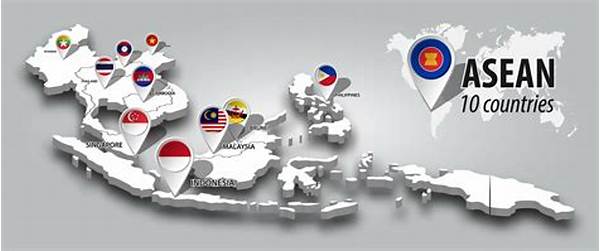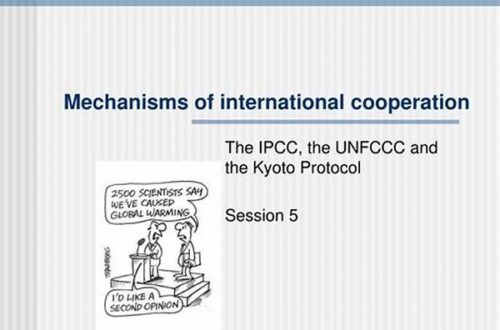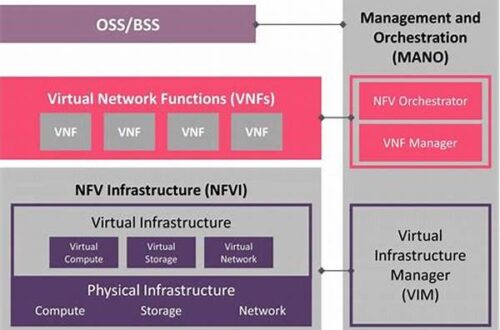In an increasingly interconnected world, the significance of collaboration between nations, particularly in the realm of intelligence, cannot be overstated. International intelligence cooperation agreements represent a cornerstone of global security, fostering a collective effort to address threats that transcend national borders. These agreements facilitate the sharing of vital information, resources, and strategies among countries, thereby enhancing their capacity to respond effectively to complex challenges. As security threats become more sophisticated, the imperative for such cooperation becomes ever more pronounced.
The Importance of International Intelligence Cooperation Agreements
International intelligence cooperation agreements are essential in ensuring global security. They enable countries to pool resources and intelligence in the face of shared threats, such as terrorism, cyberattacks, and transnational crime. Through these agreements, nations can exchange valuable insights and leverage their collective expertise, thereby enhancing their abilities to anticipate and mitigate risks. By prioritizing collaboration, states can build trust, streamline communication, and enhance their strategic capabilities, ultimately contributing to a safer international environment.
Moreover, international intelligence cooperation agreements play a pivotal role in establishing a framework for standardized procedures and protocols. These protocols facilitate seamless communication and interaction, enabling countries to efficiently share intelligence while respecting national sovereignty and legal constraints. As these agreements mature, they contribute to the development of robust partnerships characterized by mutual respect and shared objectives. This level of cooperation is vital in navigating the complexities of the modern geopolitical landscape and ensuring the continued security and prosperity of participating nations.
Mechanisms of International Intelligence Cooperation Agreements
1. Bilateral and Multilateral Collaboration
International intelligence cooperation agreements can be established bilaterally or multilaterally, involving two or more countries respectively. These agreements provide platforms for direct communication and collaboration, ensuring that essential information and resources are shared efficiently among participating nations.
2. Standardized Information Sharing
A key component of international intelligence cooperation agreements is the standardization of information sharing practices. This ensures that intelligence is exchanged in a timely and accurate manner, enabling nations to respond swiftly to emerging threats and challenges.
3. Joint Training and Exercises
International intelligence cooperation agreements often include provisions for joint training and exercises. These activities facilitate skill enhancement and promote mutual understanding among intelligence personnel, thereby strengthening collaborative efforts and improving operational effectiveness.
4. Legal and Ethical Frameworks
These agreements establish legal and ethical standards for intelligence sharing, ensuring that all participating nations adhere to commonly accepted principles. This fosters an environment of trust and accountability, which is essential for effective international cooperation.
5. Crisis Response Mechanisms
International intelligence cooperation agreements often incorporate crisis response mechanisms, allowing countries to coordinate efforts quickly and efficiently in the event of an unexpected threat. This enhances their ability to manage emergencies and minimize potential harm.
Challenges in Implementing International Intelligence Cooperation Agreements
Implementing international intelligence cooperation agreements is not without its challenges. Differences in political systems, legal frameworks, and cultural perspectives can pose significant hurdles to effective collaboration. Even when nations share common security interests, varying levels of trust and differing priorities can complicate the negotiation and execution of these agreements. Addressing these challenges requires diplomatic finesse, a commitment to transparency, and a willingness to engage in continuous dialogue.
Furthermore, one of the primary challenges in executing international intelligence cooperation agreements is the risk of information leakage and breaches of confidentiality. To counter this, countries must invest in robust security measures and establish clear protocols for handling sensitive data. Building mutual trust through transparency and consistent communication is essential in ensuring the integrity and success of these agreements. By overcoming such obstacles, nations can enhance their cooperative efforts, ultimately contributing to global stability and security.
The Significance of Trust in International Intelligence Cooperation Agreements
In the realm of international intelligence cooperation agreements, trust is the bedrock that underlies effective collaboration. Trust fosters an environment where countries can confidently share sensitive information, knowing that it will be handled with the utmost discretion. Establishing and maintaining trust requires consistent communication, transparency in operations, and adherence to agreed-upon protocols. Nations must demonstrate a commitment to honoring the terms of these agreements and respect each other’s sovereignty and sensitivities.
Additionally, trust in international intelligence cooperation agreements is reinforced through regular engagement and successful joint operations. When countries experience tangible benefits from cooperation and see positive outcomes from shared efforts, their confidence in these agreements grows. Ultimately, trust acts as a catalyst, enabling nations to deepen their partnerships and enhance their collective security posture.
Future Prospects for International Intelligence Cooperation Agreements
Looking ahead, international intelligence cooperation agreements are poised to become even more critical as global security challenges evolve. The increasing sophistication of threats, such as cyberattacks and international terrorism, necessitates a coordinated and comprehensive response. As such, further enhancements in the scope and depth of these agreements are expected. Future prospects include expanding the range of participating countries and incorporating emerging technologies to streamline communication and information sharing processes.
Moreover, international intelligence cooperation agreements may evolve to address non-traditional security threats, such as climate change and pandemics. By broadening their focus, these agreements can provide a framework for international cooperation on a wider range of issues, thereby contributing to global stability and resilience. As countries continue to navigate an ever-changing global landscape, the relevance and importance of these agreements are likely to increase.
Summary
In summary, international intelligence cooperation agreements are crucial tools in the global effort to maintain security and stability. They serve as a platform for countries to collaborate, share information, and coordinate efforts in addressing shared threats and challenges. Through these agreements, nations can leverage their collective strengths and resources, thereby enhancing their ability to respond to complex security issues.
The success of international intelligence cooperation agreements hinges on the principles of trust, transparency, and mutual respect. By overcoming challenges and fostering a strong foundation of collaboration, these agreements can contribute significantly to global peace and stability. As the world faces ever-evolving threats, the importance of such cooperative frameworks is likely to grow, underscoring the need for sustained efforts to enhance international intelligence collaboration.





